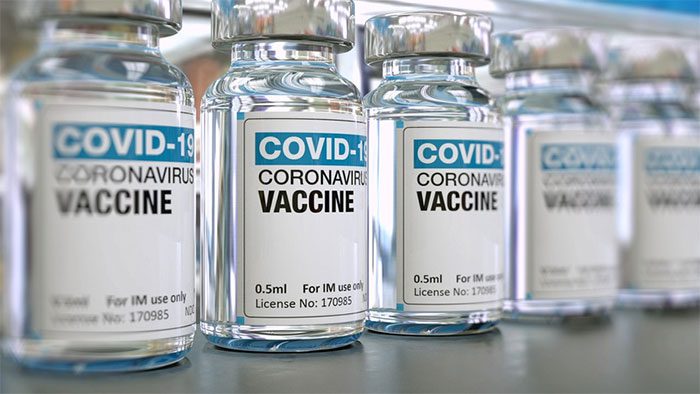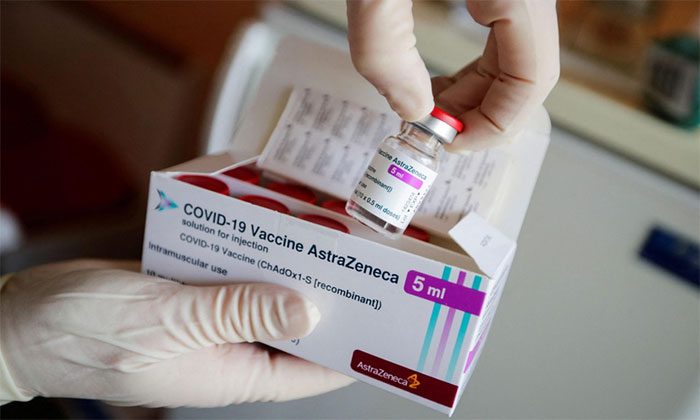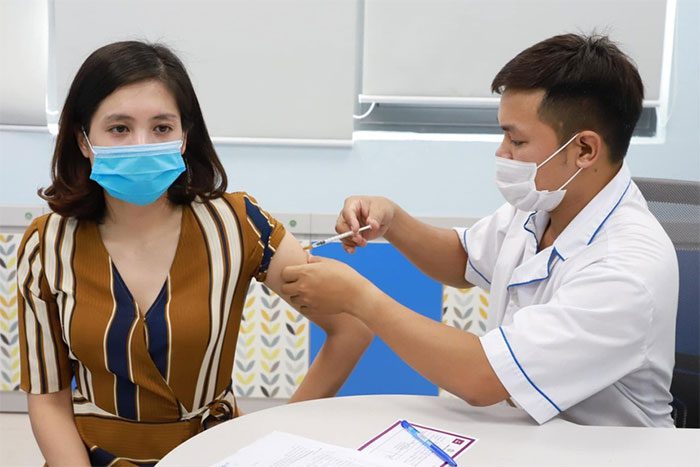The belief that vaccinated individuals will not contract Covid-19 can lead to complacency. If regulations are not followed, the risk of an outbreak is very high.
Recently, dozens of healthcare workers at the Ho Chi Minh City Tropical Disease Hospital contracted Covid-19. All of them had received the AstraZeneca vaccine. This has led many to believe that the vaccine has lost its effectiveness. However, this is a misunderstanding.
Will 100% of vaccinated individuals not contract Covid-19?
According to Professor Tran Tinh Hien, former Deputy Director of the Ho Chi Minh City Tropical Disease Hospital, there is no vaccine that protects 100% of those vaccinated.
Based on an analysis by a senior expert advisor at the Oxford University Clinical Research Unit (UK), using data from AstraZeneca and statistics on positivity rates in the U.S., vaccines are not an absolute protection against the pandemic.
Professor Hien emphasized that the occurrence of positive cases in the Ho Chi Minh City Tropical Disease Hospital, or any community that has been vaccinated, is not a failure of vaccination.
In agreement, Dr. Pham Quang Thai, Head of the Northern Vaccination Office and Deputy Head of the Infectious Disease Control Department at the Central Institute of Hygiene and Epidemiology (Hanoi), stressed that the Covid-19 vaccine does not provide absolute protection.

The belief that vaccinated individuals will not contract the disease is a misconception. (Photo: Reuters).
The expert also revealed that when the Central Institute of Hygiene and Epidemiology reassessed those who had been vaccinated after one month, the results showed that up to 90% of those who received the first dose had developed antibodies. This is a very promising result indicating that we have vaccine protection, even though the level of protection may not be strong enough. This is why we need to receive the second dose.
Importantly, even after vaccination, individuals may not contract Covid-19, but they can still carry the virus and transmit it to others.
Associate Professor Tran Dac Phu, Vice Chairman of the Advisory Council for Drug Registration and Drug Ingredients (Ministry of Health), confirmed that the Covid-19 vaccine is not a “magic charm” against the Covid-19 pandemic.
Will I be protected immediately after vaccination?
According to Dr. Pham Quang Thai, it takes at least 12-14 days after the first dose for the body to begin producing antibodies. After receiving the second dose, the vaccine achieves optimal protective effectiveness from one month onwards. This effectiveness ranges from approximately 60-90%, depending on the type of vaccine.
Associate Professor Tran Dac Phu also believes that the effectiveness of vaccination will be high after completing both doses (approximately one month after the second dose). The protective effectiveness varies by vaccine and among individuals. Those who develop a good immune response will have better effectiveness, and vice versa.
Initial evaluations in phase 3 trials of the vaccine in the UK and Brazil indicated that individuals receiving the first dose of the Covid-19 vaccine had about a 76% efficacy against the virus. This figure rises to 82% after the second dose.

The AstraZeneca vaccine is the first to be approved and imported by Vietnam. (Photo: Chi Hung).
However, according to Dr. Nguyen Tri Dung, Director of the Ho Chi Minh City Center for Disease Control (HCDC), the B.1.617.2 variant (Delta variant, first identified in India) has reduced the efficacy of not only the AstraZeneca vaccine but also many other vaccines.
Specifically, the efficacy of the first dose of the vaccine against the B.1.1.7 variant (first identified in the UK) is 51%, while the efficacy against the Indian variant is 33%. Meanwhile, the efficacy of the Covid-19 vaccine after the second dose against the UK variant is 93% and 80% against the Indian variant.
“We can see that vaccines still have disadvantages compared to the evolution of the virus. However, based on real-world statistics, vaccines still help vaccinated individuals avoid severe illness, and the rate of asymptomatic infections is reduced to about 50-60%. More importantly, the mortality rate in this group is also significantly reduced,” emphasized Mr. Dung.
Only healthy individuals can receive the Covid-19 vaccine?
The strategic advisory group of the World Health Organization (WHO) recommends that in the context of limited vaccine supply, priority should be given to healthcare workers at high risk of exposure, and older adults (including those aged 65 and over).
In addition to these priority groups, the WHO encourages individuals with underlying health conditions, those at high risk for Covid-19, or those likely to experience severe complications, such as those with obesity, cardiovascular, respiratory, or diabetes, to receive the AstraZeneca vaccine.

Citizens should get vaccinated to achieve herd immunity soon. (Photo: Hoang Hiep).
Additionally, the AstraZeneca vaccine is not recommended for individuals under 18 years of age.
The temporary guidelines for pre-vaccination screening for the Covid-19 vaccine issued by the Ministry of Health specify that the following four groups of people should not be vaccinated:
- Individuals with a severe allergic reaction to any active ingredient or excipient listed in the vaccine components.
- Individuals with allergic predispositions or pre-existing health conditions; if uncertain about allergic conditions, consult a doctor for advice.
- Individuals with immune deficiencies or those taking medications that weaken the immune system (high-dose corticosteroids, immunosuppressants, or cancer medications).
- Individuals currently infected, with fever (≥ 37.5°C).
- Individuals with bleeding/bruising issues or those taking anticoagulants.
Experts also emphasize that vaccination against Covid-19 is a very important preventive measure. However, the general public, especially those who have been vaccinated against Covid-19, must remain aware of the importance of following the 5K rules: wearing masks, disinfecting, maintaining distance, avoiding gatherings, and health declarations. These measures should be maintained in the current context.
“Even globally, countries continue to call for personal preventive measures. Notably, Israel has vaccinated 50% of its population against Covid-19, yet they still urge citizens to practice personal preventive measures. This is aside from the emergence of variants that may render vaccines ineffective,” noted Associate Professor Phu.



















































